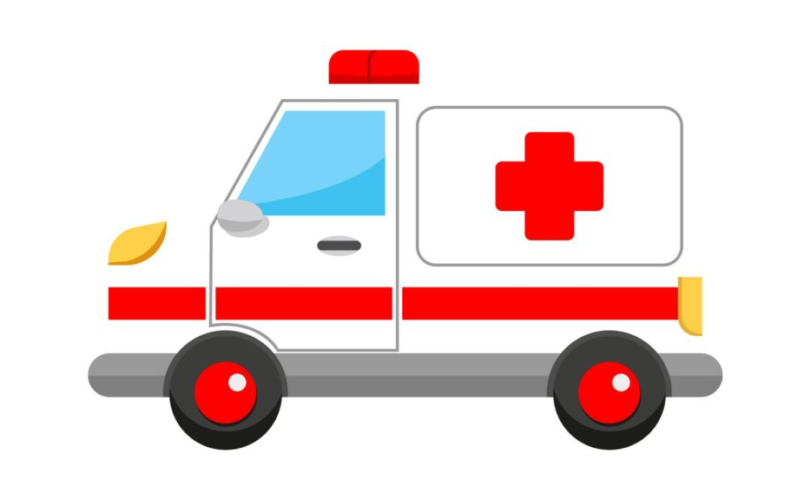Ambulance services in srinagar play an indispensable role in ensuring timely medical assistance and saving lives amidst emergencies. Serving as a vital lifeline, these services navigate through the city’s bustling streets and challenging terrains to swiftly reach those in need, often in critical conditions.

AMBULANCE SERVICES IN SRINAGAR












Introduction
Ambulance services play a crucial role in providing timely medical assistance to those in need. Whether it’s responding to emergencies or transporting patients to healthcare facilities, ambulances are the frontline responders that can make a life-saving difference.
Importance of Ambulance Services
Ambulance services are vital for ensuring that individuals receive prompt medical care, especially in critical situations such as accidents, heart attacks, or strokes. The swift response of ambulances can significantly improve the chances of survival and reduce the risk of long-term complications.
Timely Medical Assistance
In emergencies, every second counts. Ambulance services are equipped with trained medical professionals and life-saving equipment to stabilize patients and provide essential care en route to the hospital. This immediate intervention can make a significant difference in the outcome of medical emergencies.
Accessibility in Urban Areas
In urban centers like Srinagar, ambulance services are typically more accessible due to better infrastructure and resources. Prompt response times and well-equipped ambulances ensure that residents can quickly access medical assistance when needed.
Challenges in Rural Areas
However, in rural areas, access to ambulance services can be challenging due to factors such as limited infrastructure, longer distances to healthcare facilities, and inadequate resources. Addressing these challenges is crucial to ensuring equitable access to emergency medical care for all communities.
Ambulance Services in Srinagar
In Srinagar, the provision of ambulance services plays an indispensable role in ensuring timely medical assistance and saving lives amidst emergencies. Serving as a vital lifeline, these services navigate through the city’s bustling streets and challenging terrains to swiftly reach those in need, often in critical conditions.
With Srinagar being a city prone to various emergencies, including accidents, and health crises, the presence of a robust ambulance service is paramount. Moreover, in a region where access to healthcare might be limited in remote areas, ambulances serve as a bridge, connecting patients with the necessary medical facilities. Therefore, the availability and efficiency of ambulance services in Srinagar are not just conveniences but fundamental components of the city’s healthcare infrastructure, ensuring that urgent medical attention is accessible to all, regardless of location or circumstance.
Impact on Healthcare Outcomes
The availability of ambulance services has a direct impact on healthcare outcomes. By reducing the time between the onset of a medical emergency and the initiation of treatment, ambulances help improve survival rates and minimize the risk of disability.
Training of Ambulance Staff
Ensuring the effectiveness of ambulance services requires ongoing training and education for ambulance staff. Proper training equips them with the skills and knowledge needed to assess and address medical emergencies effectively.
Public Awareness and Education
Public awareness about the importance of ambulance services and how to access them is essential. Educational initiatives can help empower communities to recognize medical emergencies and take appropriate action, such as calling for an ambulance promptly.
Coordination with Healthcare Facilities
Effective coordination between ambulance services and healthcare facilities is crucial for seamless patient care. Ambulance crews must communicate efficiently with hospital staff to ensure that patients receive the appropriate level of care upon arrival.
Innovations in Ambulance Services
Advancements in technology have led to innovations in ambulance services, such as GPS tracking systems, telemedicine capabilities, and specialized medical equipment. These innovations enhance the efficiency and effectiveness of ambulance operations.
Future Prospects
Looking ahead, the continued evolution of ambulance services will be driven by advancements in technology, changes in healthcare delivery models, and efforts to address disparities in access to emergency medical care. By embracing innovation and collaboration, ambulance services can further enhance their ability to save lives and improve health outcomes.
Conclusion
In conclusion, ambulance services play a vital role in providing timely medical assistance and improving healthcare outcomes. Whether in urban centers like Srinagar or rural communities, access to prompt and effective ambulance services is essential for saving lives and reducing the burden of disease.
The information provided on this blog ” www.srinagarchronicles” is for general informational purposes only and should not be considered as professional advice. We do not guarantee the accuracy, completeness, or reliability of any information on this blog. Any action you take upon the information presented on this blog is strictly at your own risk. We are not liable for any losses or damages in connection with the use of this blog.







